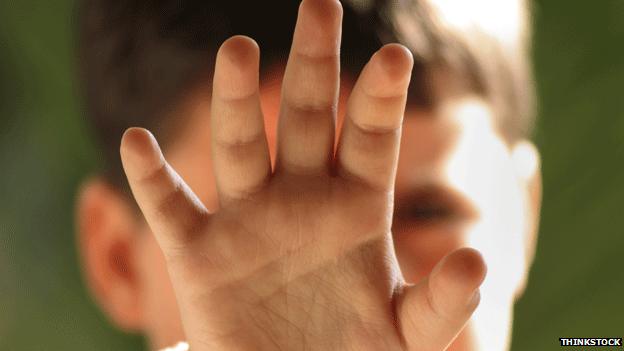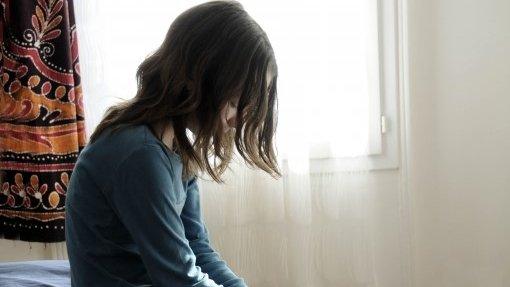Rise in helpline calls over suspected child abuse
- Published

The NSPCC in Scotland has revealed a 19% rise in the number of calls to its helplines from adults worried about children being abused.
The charity said the reasons were not clear, although greater awareness of sexual abuse, arising from historical cases, may be a cause.
It said this showed the Scottish legal system must become more sensitive.
It has called for a "bold approach" to reform the way child sex abuse cases are handled.
The figures were published as the NSPCC launched its third How Safe are our Children? report measuring the extent and nature of child abuse across the UK.
Scottish government figures showed that in 2013-14 there were 3,742 sexual offences against children including rape, sexual assault and grooming - a 10-year high.
Call for reform
The charity said that in the following year, 2014-15, the number of contacts to its helpline from adults in Scotland worried a child was being sexually abused rose by 19% from 341 to 407.
Almost half (203) were considered so serious they were immediately referred to the police or children's services.
The NSPCC said it was not clear why the number of recorded offences had risen.
But it said more victims may have the courage to come forward following the reporting of historical cases and the police may also have improved their recording methods.
The NSPCC said the report showed "the pressing need to tackle child abuse".
It revealed:
The number of children in the child protection system in Scotland has risen by 43% since 2002.
The proportion of children who have been re-registered onto child protection registers in Scotland has increased from 12.5% in 2006/7 to 16.5% in 2013/14.
Parental substance misuse and domestic abuse have been identified as concerns for more than a third of children on child protection registers in Scotland.
The number of children looked after or accommodated away from home in Scotland has increased every year since 2001.
The charity praised the Scottish government for establishing an inquiry into historical abuse in children's institutions.
But Matt Forde, NSPCC Scotland's head of national services, said as more children spoke out, the Scottish legal system needed to develop a more sensitive and effective response to ensuring justice was served.
He said: "The nation has been horrified by the revelations of decades of horrendous child abuse. But while the Scottish government's inquiry is historical, child abuse is not.
"For too many children, our court system adds further trauma to their earlier experiences of abuse. We need a bold approach to reform our legal system."
Mr Forde added: "Today's report shows just how far we've all got to go to make Scotland the best place for every child to grow up in.
"The increase in children returning to child protection registers indicates we are failing to protect them first time round. And, significantly, more vulnerable children are living in unhappy circumstances, without support or intervention.
"Children's services can't protect these children on their own. A wider pool of professionals need to be involved in promoting children's health and well-being if we are to get it right for every child."
Scandinavian system
A Scottish Courts Service report, external published in March agreed changes were necessary.
It said: "In recent decades the number of child and vulnerable witnesses being called to give evidence has increased dramatically.
"They have, however, been introduced into a system that was ill-equipped to accommodate them, with the result that there have been a series of adjustments to the law and practice that, at best, only partially address their needs."
The NSPCC said a Scandinavian system, called Barnehus, had helped free children from further suffering, allowing the therapeutic support they needed to begin more quickly.
In specialist centres, designed to be non-threatening and reassuring for victims, a team including a criminal investigator and prosecutor, a health expert, a senior social worker, a judicial counsellor and forensic expert worked together to support the child.
The aim was to help victims through possible trauma and to make sense of official procedures to reduce long-term problems.
- Published17 June 2015
